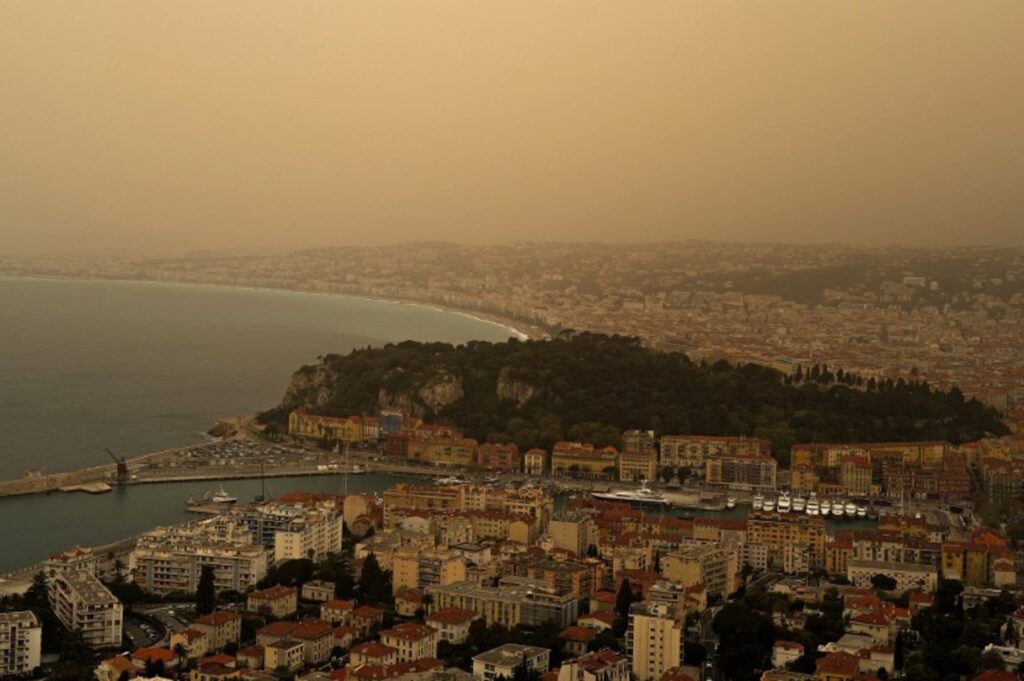The "extraordinary" amount of dust that has been blowing across Western Europe from the Sahara had harmful effects on the air quality in several countries. However, Belgium has been spared the worst.
After a repeated series of Saharan dust episodes reaching Europe in recent weeks, which saw the snowy Alps being covered in dust and the sky turning orange, another surge in Saharan sand swept across Europe over the weekend – the third of its kind in the last two weeks.
Aside from dirty cars and slightly hazier skies, Belgium was largely spared despite previous warnings. However, in other places, the European weather service Copernicus' Atmosphere Monitoring Service (CAMS) confirmed that this phenomenon saw air quality dramatically reduce.
"Our forecasts showed most of the dust transport across Europe to be at higher altitude, but with some increased concentrations at ground level," Mark Parrington, Senior CAMS Scientist, told The Brussels Times. The highest concentrations were measured over Spain and parts of France, as well as in Germany.

Credit: Copernicus
Here, forecasts showed significant concentrations at the surface level, exceeding the EU 24-hour mean exposure threshold of 50 µg/m3 in some of the affected regions. These concentrations may continue to rise in the coming days.
Exposure to high PM10 levels can be dangerous, especially for vulnerable people, including elderly people, children and pregnant women. It can also exacerbate certain cardiovascular or respiratory conditions.
In Belgium, the ground-level dust and particulate matter concentrations (PM10) were "fairly moderate in the forecasts," Parrington noted.
Related News
- 'Long and intense': Pollen season kicks off early in Belgium
- Arrival of Sahara sand on Saturday could hamper chances of warm weather
While it is not unusual for Saharan dust plumes to reach Europe – and sometimes as far as Scandinavia – there has been an increase in the intensity and frequency of such episodes in recent years, such as in Belgium in March and May 2022.
"This could be attributed to changes in atmospheric circulation patterns," said Parrington. This could mean that, in the future, air quality in Belgium too may be reduced.

